Questions and Answers
We asked Toby’s Mum Nikki and Dr Christina Parfitt (Consultant Paediatric Oncologist on the Emily Kent Unit) for their opinions on why a psychologist would make a real difference to Gloucestershire children diagnosed with cancer and their families.
Julie Kent and Kai outside the EKU at Gloucestershire Royal Hospital.
To Toby’s Mum Nikki:
-
A: It would make a huge difference to the whole family. For me as a Mum it’s hard to put him through things like port access and NG tube changes which he hates. I have to help hold him down and facilitate the trauma so it goes against every natural instinct to protect your child at all costs. I worry about the effect it will have on our relationship and if he will lose his trust in me, I worry that I won’t be able to comfort him any longer because in his eyes, I’m part of the cause. Trying to explain why he needs these things done is terrible.
For his sister, it would make a huge difference to help her come to terms with her feelings. When we go out he gets showered with attention while she’s virtually ignored, he’s always being given gifts, wishes, day trips and all sorts of other treats whereas she isn’t. She doesn’t see the traumatic things that he has to go through so it’s hard for her to appreciate why he is being given treats. Then she feels terrible for being jealous and on top of all that she’s worried he will die. She’s 10, there’s too many grown up thoughts and emotions for her to deal with on her own and I don’t feel equipped to help her deal with them either.
-
A: Honestly, I just push a lot of it to the back of my mind and try to live day to day. If I look back to how things were before treatment, back to when he was diagnosed and started treatment or forward to what the future may hold, I’m terrified. There are all these what if’s that play out in my mind, could it have been prevented? Was it something I did or didn’t do? Could he have been diagnosed sooner? Why didn’t I notice how sick he was? Why did I keep letting medical professionals send us away with no clear answers? Why wasn’t I told in a private room instead of behind a curtain in a ward?
And for the future: why if he relapses? What if he picks up an infection he can’t beat? What if he doesn’t make it? What if he does make it but has permanent side effects or damage? I tend to stick to the here and now because it’s easier to cope with.
I was fortunate enough to get funding for 6 counselling sessions which were tremendous, but were nowhere near enough. 6 sessions for over 2 year’s worth of treatment, plus the many years of check-ups ahead of us before he gets the all clear is just not enough.
-
A: She’s found it difficult to cope with, there have been a lot of difficult thoughts and feelings for her to cope with. Jealousy, fear, and anger being the main ones. Jealous of the attention and treats he gets, fear that he’ll die and anger that she’s feeling jealous and that it’s happened to him.
-
A: Yes and no. A lot of the time I’m not sure that he really understands the word cancer and what that means but every so often he tells me he hates having cancer and that he doesn’t want to die. Most of the time he just accepts what’s happening until it comes to something traumatic like a finger prick blood test (this takes at least an hour each time), an NG tube change, a dressing change or port access.
He doesn’t really talk about it, and I feel that he needs help to deal with the trauma now before it causes bigger problems in the future.
-
A: Absolutely, 100% without a doubt. I can’t believe that it’s such a postcode lottery for this kind of support. This should be as essential as the chemotherapy, treating cancer should be about taking care of the whole person and that includes their mental health as well as that of their loved ones, who are the ones who will get them through it all. After all, you can’t pour from an empty cup.
To Dr Christina Parfitt
(Consultant Paediatric Oncologist on the Emily Kent Unit)
-
A: Psychology support is an integral part of care for children and families being treated for cancer.
-
A: Receiving a diagnosis of cancer and navigating the treatment pathway can be emotionally distressing for the entire family.
-
A: A psychologist provides essential support, helping families to understand the impact of a cancer diagnosis and working with them to manage challenges.
-
A: It will be incredible to have this vital provision within our service locally.


